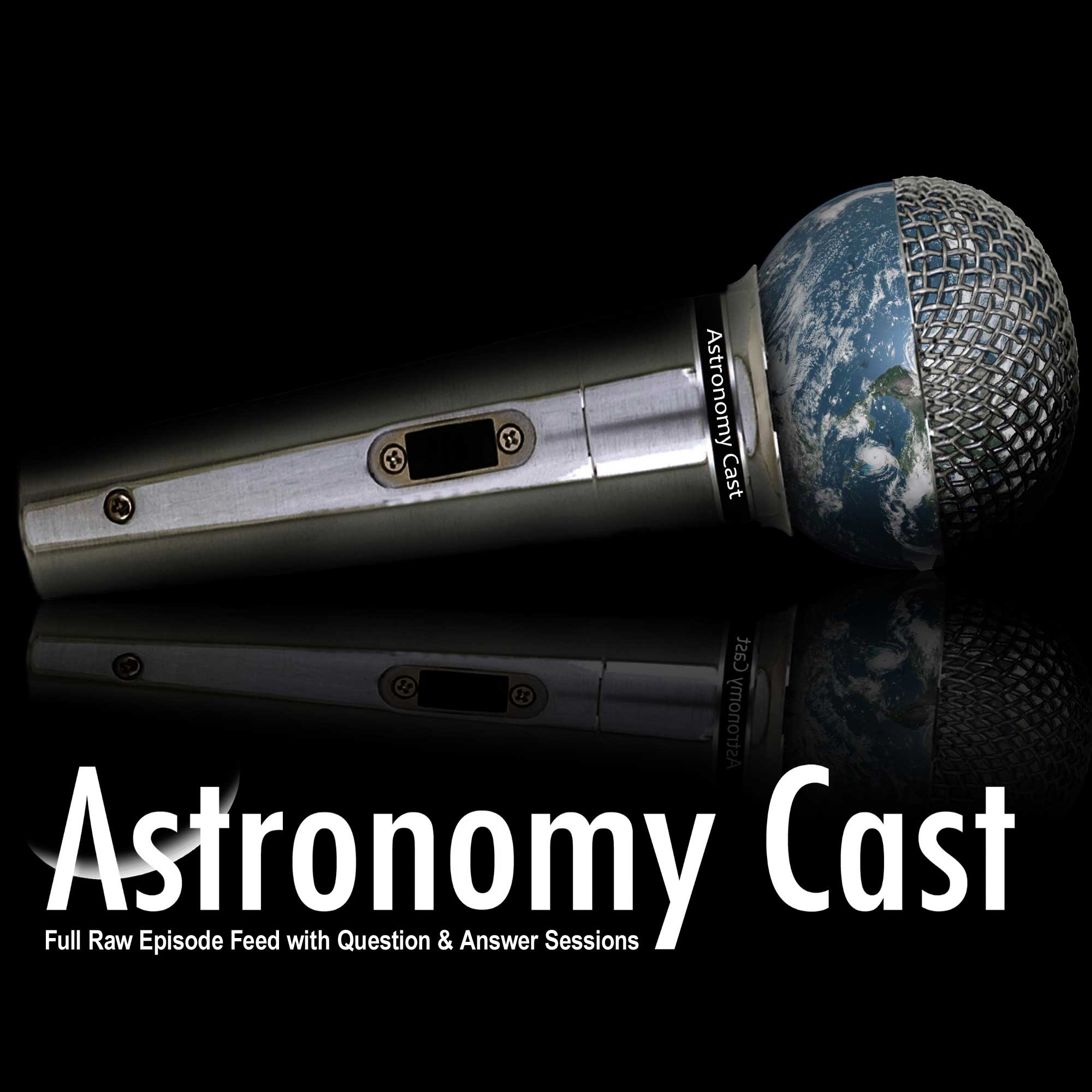
365 Days of Astronomy - Weekly Edition
The weekly podcast from the International Year of Astronomy 2009. This podcast comes out weekly and includes each daily episode of the 365 Days of Astronomy Podcast.
- Update frequency
- every 7 days
- Average duration
- 55 minutes
- Episodes
- 329
- Years Active
- 2017 - 2025

Ep. 625: End of the Year Review
We've reached the end of 2021 and this is the last episode of the year. Let's look back at the big space events of the last year and talk about what we're looking forward to in 2022.

Ep. 624: Small Rocky Bodies (Including Phobos & Deimos)
We've talked about the icy objects of the Solar System, today let's talk about space rocks. There's a surprising variety of rocky material in the Solar System, and each object has a story to tell abo…

Ep. 623: NEOs: Concern or Nah
Are asteroids dangerous? Well, just ask the dinosaurs and they’ll tell you a sad story of fiery death. It turns out we’re in a shooting gallery of space rock and metal. And somewhere out there there’…

Ep. 622: Rockier Moons & Giant Asteroids
So a rock is a rock is a rock. Right? Across the solar system there are giant rocky asteroids and even “gianter” rocky moons. What is the difference between these two families of objects and where do…

Ep. 621: Gas Giants
For the longest time the only gas giant planets that we knew about were Jupiter and Saturn. But now, in the age of extrasolar planets, astronomers have discovered thousands of gas giants across almos…

Ep. 620: Why Getting to the Outer Worlds is So Difficult
Good News! Over the next few years we’re gonna see a flotilla of new missions headed to Jupiter and Saturn. Why aren’t we seeing more missions to the outer planets like Uranus and Neptune, even Pluto…

Ep. 619: Icy Moons & Dwarf Planets
The outer Solar System is far enough from the Sun that water doesn't get blasted away into deep space. In this icy realm, there are many worlds with vast quantities of water ice. Today let's look at …

Ep. 618: Ice Giants
So we’re learning more & more about the outer planets of the solar system. Uranus & Neptune are Ice Giants, filled with water and other volatiles that we'd consider ice if it was here on Earth. What’…

Ep. 617: Hangout-A-Thon Episode 2 - Crowdfunding Science
Funding for basic science has always been tricky business, coming mainly from universities, government, companies or wealthy individuals. But who knows how many fascinating discoveries were never mad…

Ep. 616: Hangout-A-Thon Episode 1 - The Great Observatories
Well, you’re familiar with the Hubble Space Telescope of course, but it’s just one of NASA’s Great Observatories. After Hubble came 3 more incredible telescopes. Each greater than the last! (That’s n…

Ep. 615: Planet 9
After Pluto lost its planethood we were down to 8 planets. But there’s growing evidence of another world or worlds out beyond the orbit of Pluto. Is Planet 9 out there and how will we find it? Could …

Ep. 614: Centaurs, Comets & Asteroids
So there are asteroids, and there are comets. But there’s an entirely separate class of objects called centaurs. But instead of half human, half horse, imagine an object that’s half comet, half aster…

Ep. 613: Pluto’s Demotion: 15 Years Later
It's been 15 years since Pluto was kicked out of the planet club. It also happens to be the topic of our very first episode of Astronomy Cast more than 600 episodes ago. Are there any updates? Does P…

Ep. 612: The SETI Renaissance
Last week we talked about the various ways that astronomers could detect the presence of intelligent civilizations by observing technosignatures. This week we'll give you an update on the state of th…

Ep. 611: What is Required to Confirm Alien Life: Intelligence Edition
Last week we talked about what it's going to take to confirm basic biological life across the Solar System and the Milky Way. This week, we'll discuss what it's going to take to detect intelligent li…

Ep. 610: What is Required to Confirm Alien Life: Non-Sentient Edition
Are we alone in the Universe? It's one of the biggest scientific questions we can possibly ask. And yet, with rovers on Mars, missions planned to visit Europa and Ganymede. Powerful telescopes able t…

Ep. 609: Volcanos With Benefits: Lava Tubes, Hydro Thermal Vents & More
Volcanos can be some of the worst natural disasters that we can experience here on Earth. But life wouldn't even exist without them. So, what are volcanos good for anyway?

Ep. 608: NASA Perseverance, The First 100 Days
As you all know, Pamela refuses to talk about any missions which aren't actually doing science. Well, Perseverance has crossed the line, from fantasy to an actual working rover, scooping regolith and…

Ep. 607: InSight and Earthquakes
Mars is cold and dead today, but the massive volcanoes tell us what the planet used to be like, millions and even billions of years ago. But how volcanically active is the planet today? That's what N…

Ep. 606 - Time Dilation: Skipping Thru Time
Have you ever wanted to be a time traveler? Well, good news! You're time traveling right now. Into the future at one second per second. Taking too long? Don't want to wait? Good news, Einstein's got …